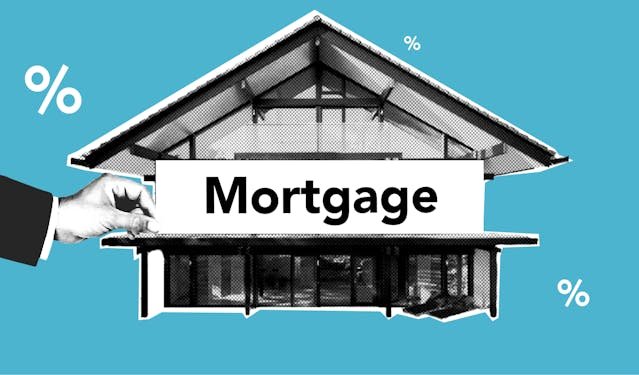Detailed Guide To What Mortgage Refinancing Companies Do

Are you considering refinancing your mortgage but unsure about who to entrust with the process? That’s where mortgage refinancing companies come in. These are the guys who specialise in helping you replace your current home loan with a better one. This might sound very simple, but there’s a lot more going on behind the scenes than most people realize.
What exactly do these companies do, and why should you care? Whether you’re hoping to score a lower interest rate, tap into your home equity, or just shake off that high monthly payment, understanding how these companies work could save you serious money and stress.
What is mortgage refinancing?
Mortgage refinancing is when you replace your current home loan with a brand-new one, usually to get better terms. It’s like trading your old loan for a newer, shinier version that will hopefully work more in your favour.
Why do people do it? A few common reasons:
- To get a lower interest rate
- To reduce monthly payments
- To switch loan types (like from an adjustable-rate to a fixed-rate mortgage)
- Or to tap into home equity: take out cash you’ve built up in your home
IRefinancing gives you a chance to renegotiate instead of sticking with your original loan for the next 15 or 30 years. Refinancing is akin to restarting your mortgage, ideally with improved terms.
What do mortgage refinancing companies actually do?
Mortgage refinancing companies assist you in replacing your old mortgage with a new one. But they’re not just sitting around pushing paperwork; they’re actively working to find you a better deal (at least, the best ones are).
Here’s what they really do behind the scenes:
1. Shop for Loan Options
TThese companies typically have access to a network of lenders. They compare rates, terms, and programs to help you find one that fits your needs: kind of like a matchmaker, but for home loans.
2. Handle All the Paperwork
Refinancing comes with a mountain of documents. Mortgage refinancing companies assist you with the application process, collect your income and credit information, and manage all the intricate details to ensure you don’t become overwhelmed.
3. Run the Numbers
They help you calculate whether refinancing actually makes sense for your financial situation. Will you save money? How long will it take for you to break even on the fees? A trustworthy company will walk you through the math, not just push a sale.
4. Communicate With Lenders and Underwriters
Underwriters, who approve or deny the loan, review your information once you apply. Refinancing companies serve as intermediaries, ensuring seamless transactions.
5. Close the Deal
When it’s go time, they schedule your closing, finalize your new mortgage, and make sure your old loan gets paid off. Once you sign the documents, the process of refinancing begins.
Basically, they handle the messy stuff so you don’t have to stress. If they perform their duties effectively, they will provide you with a superior mortgage and increase your monthly income.
The Most Common Types of Mortgage Refinance Loans
1. Rate-and-Term Refinance
This one’s the most popular. You’re simply changing the interest rate, the loan term, or both.
Example: Going from a 30-year loan to a 15-year loan or lowering your 7% rate to 5%.
Best for: Saving money on interest or paying off your mortgage faster.
2. Cash-Out Refinance
This scenario is when you refinance for more than you owe and take the difference in cash. You’re literally pulling equity out of your home.
Example: You owe $200K, refinance for $250K, and take $50K in cash.
Best for: Big expenses like home renovations, debt consolidation, or tuition.
3. Cash-In Refinance
Rather than withdrawing funds, you contribute to the reduction of your loan balance. This option can get you a better rate or help you avoid PMI (private mortgage insurance).
Example: You owe $250K but bring $30K in cash to refinance down to $220K.
Best for: People who want to build equity faster or reduce monthly payments.
4. Streamline Refinance
This refinance option is available for government-backed loans such as FHA, VA, or USDA. It’s a simplified process: with fewer docs, less hassle, and sometimes no appraisal needed.
Example: FHA Streamline or VA IRRRL (Interest Rate Reduction Refinance Loan).
Best for: Homeowners with FHA or VA loans looking for an easier path to better terms.
5. No-Closing-Cost Refinance
You refinance without paying upfront closing fees, they’re rolled into your loan or covered by a slightly higher interest rate.
Example: Instead of requiring an out-of-pocket payment of $5K, your loan balance includes it.
This option is best suited for homeowners who wish to refinance but lack the cash available to cover fees.
Each type has its pros and cons depending on your goals.
How Refinancing Companies Operate Behind the Scenes
Ever wonder what happens after you hit “Apply” on a mortgage refinancing site? While receiving an approval in your inbox may seem miraculous, a lot of work goes into the process.
Here’s how mortgage refinancing companies actually work behind the scenes:
1. They Act as the Middleman (In a Good Way)
These companies are like your personal mortgage matchmaker. Once you give them your financial info, e.g., income, credit score, and debts, they compare your profile against loan options from different lenders. Their goal is to match you with the best-fit loan based on your goals (lower rate, cash out, shorter term, etc.).
2. They Package Your Loan for Approval
After finding a loan option, they build your refinance application into a neat, complete package that lenders (and their underwriters) can review. This includes:
- Pulling your credit report
- Verifying income and employment
- Reviewing home value (often with an appraisal)
- Checking debt-to-income (DTI) ratio and loan-to-value (LTV) ratio
They don’t just send your info raw; they clean it up and present it in a way that boosts your chances of getting approved.
3. They Coordinate With Multiple Players
Refinancing isn’t a solo act. Behind the scenes, these companies are talking to:
- Lenders (to lock in your rate)
- Appraisers (to assess your home’s current value)
- Title companies (to confirm ownership and check for liens)
- Underwriters (to give your loan the green light)
They manage all these intricate details, relieving you of the burden of chasing phone calls or worrying about meeting deadlines.
4. They Manage Your Timeline
Time is money, especially with mortgage rates. Good refinancing companies are laser-focused on hitting deadlines, locking in rates before they rise, and making sure nothing delays closing. They keep everything (and everyone) on track.
5. They Make Money Through Fees or Commissions
Some charge you a loan origination fee. Others get a commission from the lender. Reputable companies are upfront about this, so you always know what you’re paying for.
6. They Stick With You Through Closing
Even after approval, they don’t just disappear. They walk you through the final paperwork, schedule the closing, and make sure your old loan is officially paid off.
In short, they’re like the project manager for your refinance. If they’re doing their job well, you feel supported and informed and (hopefully) save thousands in the process.
How Mortgage Refinancing Companies Differ from Traditional Mortgage Lenders
At first glance, it might seem like mortgage refinancing companies and traditional lenders do the same thing: they help you get a loan. But dig a little deeper, and you’ll see they’re actually quite different, especially in how they operate and what they offer.
Here’s how they stack up:
1. Refinancing Is Their Niche
Mortgage refinancing companies specialize in refinancing existing home loans. This is their primary focus. Meanwhile, traditional lenders (like banks and credit unions) usually focus more on new home purchases, with refinancing as just one of many services.
- Think of refinancing companies like heart specialists, while traditional lenders are general doctors.
2. They Shop Around and Lenders Don’t
Most mortgage refinancing companies work as brokers or marketplaces. That means they can compare rates and loan terms from multiple lenders, not just one.
As for traditional lenders, they can only offer their products. So you’re limited to whatever rates and options they’ve got on the shelf.
- Refinancing companies = more choices. Lenders = one-size-fits-all.
3. More Flexibility, Especially for Unique Situations
Mortgage refinancing companies work with a variety of lenders, making it more likely for them to find options for individuals who do not have “perfect borrower” profiles, such as those with less-than-ideal credit scores or who are self-employed.
Traditional lenders can be stricter. If you don’t meet their internal guidelines, your options may be limited.
4. Different Fee Structures
Traditional lenders may charge more upfront fees or closing costs, and they often don’t negotiate much.
Refinancing companies, depending on how they’re set up, might roll fees into the loan, offer lender-paid options, or waive certain costs altogether to stay competitive.
5. Technology and Speed
Many mortgage refinancing companies (especially online ones) are built for speed. You’ll often get faster pre-approvals, instant rate quotes, and digital document uploads.
Traditional lenders can still be a bit old-school—think in-person appointments, paper-heavy processes, and slower turnarounds.
Quick Recap:
| Feature | Mortgage Refinancing Companies | Traditional Mortgage Lenders |
| Loan Options | Multiple lenders (more variety) | Only their own loan products |
| Focus | Specialize in refinancing | General lending (purchase + refi) |
| Speed/Convenience | Often faster and more tech-based | May be slower, more manual |
| Flexibility | More lenient for non-standard cases | Stricter guidelines |
| Fees | Often competitive or negotiable | May charge more or offer fewer discounts |
So, which is better? It depends on your needs. A mortgage refinancing company could be your best choice if you seek variety, speed, and a dedicated focus on refinancing. However, if you already have a strong relationship with your bank or prefer to have everything in one place, a traditional lender could still be a viable option.
When Should You Use a Mortgage Refinancing Company?
Refinancing can be a smart financial move, but only when the timing’s right and you’ve got the right team guiding you. So when does it actually make sense to use a mortgage refinancing company instead of just sticking with your original lender?
Here’s when you should seriously consider bringing one in:
1. When You Want to Compare Multiple Loan Offers (Without the Headache)
Comparing rates independently can be quite time-consuming. A mortgage refinancing company does the comparison work for you: pulling rates, terms, and lender offers so you don’t have to go from bank to bank.
This service is ideal for those seeking the best deal without the need to spend hours conducting research.
2. When You’ve Got a Unique or Tricky Financial Situation
Maybe your credit score isn’t ideal. Or you’re self-employed with non-traditional income. Maybe your home value has changed, or you’ve got a higher debt-to-income ratio than banks like.
Refinancing companies often have access to speciality loan programs or more flexible lender partners who are open to these cases.
Basically, they can find options when traditional lenders say NO.
3. When You Want Lower Monthly Payments or a Better Interest Rate
If rates have dropped since you got your mortgage or your credit has improved, refinancing could seriously lower your monthly payments.
A mortgage refinancing company assists in analysing the numbers and directs you to a loan that maximises your savings over time.
It’s all about finding the right timing and the right product.
4. When You’re Thinking About a Cash-Out Refinance
Are you considering using your home equity to finance significant expenses such as renovations, debt consolidation, or even a wedding? A mortgage refinancing company can help you compare cash-out options and maximize how much you get—while still keeping your payments manageable.
They’ll help you balance: “How much can I borrow?” with “How much should I borrow?”
5. When You Don’t Have Time for the Stress
Let’s face it—refinancing can be overwhelming. A reputable mortgage refinancing company acts as your project manager. They handle the forms, talk to the lenders, keep deadlines tight, and make sure you close without drama.
If you’re too busy to navigate the maze of paperwork, a reputable mortgage refinancing company can assist you.
Working with a mortgage refinancing company can significantly enhance your options, save money, and simplify the refinancing process. But like anything else in the financial world, timing matters, and so does choosing the right company.
Pros and Cons of Working With a Mortgage Refinancing Company
If you consider using the services of a mortgage refinancing company. This is a smart move. But before you do that, it’s important to weigh the good and the not-so-good. Just like any financial decision, there are pros and cons.
Here’s a clear look at both sides:
Pros
1. Access to Multiple Lenders = Better Deals
Mortgage refinancing companies usually work with various lenders, not just one. That means you can shop around without doing all the legwork.
- More choices = better odds of scoring a lower interest rate or better loan terms.
2. They Save You Time (and Stress)
nstead of calling ten different banks, filling out ten applications, and comparing the fine print, a refinancing company handles it all in one place.
- They streamline the process, keep things organized, and help move everything forward fast.
3. Expert Guidance
They’ve seen it all. Whether your credit isn’t perfect or you’re unsure which refinance loan to pick, they can help you understand your options and avoid mistakes.
- Think of them as your mortgage coach.
4. May Offer Lower Fees or Negotiable Terms
Some refinancing companies can offer reduced closing costs or lender-paid fees to stay competitive.
- You might save more than you expect.
5. More Flexibility for Unique Financial Situations
Not everyone fits the “ideal borrower” mould. Refinancing companies often have more flexible lender connections if you’re self-employed, have a non-traditional income, or have recently faced bank rejection.
- They can get creative when banks can’t.
Cons
1. Not All Companies Are Created Equal
To be honest, not every refinancing company is trustworthy. Some might push loans that benefit them more than you. Some companies may impose higher fees or conceal important details within the fine print.
- That’s why vetting and reviews matter.
2. Possible Extra Fees
Some companies charge broker fees or add processing costs. Even if they find you a lower rate, the fees could eat into your savings if you’re not careful.
- Always ask for a full breakdown of costs upfront.
3. You May Not Get Personalized Service
If you’re working with a big online refi company, you might feel like just another file in the system. Sometimes, communication can be inconsistent.
- Local brokers or smaller firms may provide a more personalised approach.
4. Loan Offers Aren’t Guaranteed
Just because a refinancing company shows you a killer rate doesn’t mean you’ll qualify. The final loan still depends on underwriting, credit checks, home appraisals, etc.
- Pre-approval isn’t the same as final approval.
Quick Recap:
| Pros ✅ | Cons ❌ |
| More loan options | Some charge extra fees |
| Saves time & hassle | Quality varies by company |
| Expert advice | Impersonal service (with big firms) |
| Flexible for unique borrowers | No guarantee on loan approval |
| Potential for better rates | Fine print can hide costs |
Questions to Ask Before Choosing a Mortgage Refinancing Company
Not all mortgage refinancing companies possess the same qualities. Some companies are legitimate professionals who will help you save thousands, while others may not be trustworthy. Before you sign anything, it’s smart to ask a few key questions to protect yourself and your money.
Here’s what you should be asking:
1. What Lenders Do You Work With?
This question helps you figure out if the company is truly independent or tied to just one or two lenders.
- More lender options = better chances of finding the perfect loan.
2. Do You Charge Any Fees?
Ask if there are any broker fees, origination fees, or service costs—and get them in writing.
- While some fees may be expected, unexpected charges should raise concerns.
3. How Do You Get Paid?
Some companies are paid by the lender, some by you, and some both. Knowing this helps you understand their motivation.
- You want someone who’s working in your best interest, not just chasing commissions.
4. Can You Break Down the Total Loan Costs?
A trustworthy company will be upfront about:
- Interest rate
- Closing costs
- Any prepayment penalties
- Whether the rate is fixed or adjustable
No one likes surprises at the closing table.
5. Will This Trigger a Hard Credit Check?
Multiple hard credit pulls can hurt your score. Ask if you’ll get a soft inquiry first to shop around without dinging your credit.
- Pro tip: If you rate-shop within a short time window (usually 14–45 days), credit agencies often treat it as one inquiry.
6. How Long Will the Process Take?
You don’t want to be stuck in limbo for months. Get a timeline—from application to closing—so you can plan accordingly.
- Most refinances typically take about 30 to 45 days, although this duration can vary.
7. Do You Offer Lock-In Rates?
Mortgage rates fluctuate daily. A rate lock guarantees today’s rate while you go through the process.
- Ask how long the lock lasts and if there’s a fee.
8. What Happens If the Appraisal Comes In Low?
Your home’s value affects everything—loan approval, interest rates, how much you can borrow.
- A trustworthy refinancing company will help you plan for “what if” scenarios.
9. Can I Roll Closing Costs Into the Loan?
If you wish to avoid paying thousands of dollars upfront, it is worthwhile to enquire about this option. Just know that it increases your loan balance slightly.
- Occasionally it’s worth it for the short-term cash relief.
10. Do You Have Client Reviews or References?
Always check the company’s track record. Look at Google reviews, BBB ratings, or even ask for client referrals.
- If they’ve helped others like you, that’s a positive sign.
Don’t be afraid to ask these questions. you’re the one making the investment. A legit mortgage refinancing company will be happy to answer them clearly and honestly. If the company dodges, deflects, or provides vague answers, you should walk away. Walk away.
Mortgage Refinancing Requirements: What You Need to Qualify
You must first check certain boxes before refinancing your mortgage. Most of the requirements are pretty straightforward once you know what lenders are looking for.
Here’s what typically matters:
1. A Solid Credit Score
Your credit score is a big deal. It affects whether you qualify and what kind of interest rate you get.
- For conventional refinancing: Aim for 620 or higher
- For the best rates: 740+ is golden
- FHA streamline refinance? You might qualify with a lower score
Tip: Check your score first. Knowing where you stand gives you an edge.
2. A Stable Income and Job History
Lenders want to see that you can consistently make your new mortgage payments. Expect to show:
- Pay stubs
- Tax returns (usually 1–2 years)
- W-2s or 1099s
- Proof of other income (if applicable)
Generally, 2 years of stable employment is preferred, but there are exceptions.
3. A Manageable Debt-to-Income Ratio (DTI)
This is the percentage of your monthly income that goes toward debt payments (including your mortgage).
- Ideal DTI: Below 43%
- Some programs allow higher if you have strong credit or lots of equity
Lower DTI = more breathing room for lenders = better odds of approval.
4. Enough Home Equity
Home equity is the difference between your home’s value and what you still owe.
- For most refinances: You’ll want at least 20% equity
- Some loans (like FHA or VA streamline) have more flexible rules
- For cash-out refinance: You’ll need even more equity, usually 30–40% or more
If you are not sure about your equity, a home appraisal or online home value estimate can help.
5. A Low Loan-to-Value (LTV) Ratio
LTV represents the opposite of equity. It compares how much you owe to how much your home is worth.
- Standard LTV requirement: 80% or less
- Government-backed loans may allow higher (even up to 97% in some cases)
Lower LTV = better chance at approval + lower interest rate.
6. On-Time Payment History
Lenders want to see that you’ve been keeping up with your current mortgage.
- Ideally, no late payments in the last 12 months
- Some lenders will reject your refi outright for recent missed payments
Keep your payment game strong while applying.
7. Required Documents
Get your paperwork in order early. Most lenders will ask for:
- Recent mortgage statement
- Homeowner’s insurance info
- Bank statements
- Tax documents
- ID (driver’s license, passport, etc.)
The more organized you are, the faster your refinance can move forward.
Step-by-Step Timeline (Typical)
| Step | What Happens | Timeframe |
| 1. Pre-approval | You apply, submit docs, and get initial rate quote | 1–3 days |
| 2. Rate lock (optional) | You can lock your interest rate at this point | Same day |
| 3. Home appraisal | Lender sends someone to assess your home’s value | 5–10 days |
| 4. Underwriting | Lender reviews your income, credit, and paperwork | 1–2 weeks |
| 5. Closing disclosure | You receive final terms to review | 3 days before close |
| 6. Closing day | You sign everything and finalize your new loan | 30–45 days total |
What Can Slow Things Down?
- Missing documents (like tax returns or pay stubs)
- Low home appraisal (can trigger a second review or loan change)
- Lender backlog (busy seasons = longer wait times)
- Credit or debt issues (might require explanations or extra paperwork)
- Title issues (like old liens or ownership mistakes)
Want to Speed It Up?
Here’s how:
- Respond to lender requests ASAP
- Have all your docs ready (W-2s, bank statements, ID, mortgage info, etc.)
- Avoid applying for new credit or making big financial changes during the process
- Work with a responsive mortgage refinancing company that moves quickly
How to Refinance a Mortgage with a Bad Credit Score (Step-by-Step)
When your credit score isn’t great, refinancing your mortgage can seem like a daunting task. But here’s the good news: it’s not impossible. In fact, with the right strategy, lender, and a little prep work, you can absolutely make it happen, even with a credit score under 620.
Let’s walk through it together.
Step 1: Know Where You Stand
Before anything else, check your credit score. You can’t fix what you don’t know.
Here’s how:
- Get your free credit report at AnnualCreditReport.com
- Use tools like Credit Karma, Credit Sesame, or your bank’s credit tracking feature
- Look for mistakes, collections, or anything that doesn’t look right
Pro tip: Disputing errors and paying off a high credit card balance can boost your score faster than you think.
Step 2: Explore Government-Backed Refinance Options
If your score is struggling, your best shot at refinancing is probably through a government-backed loan. These programs are built to help homeowners like you, especially if you already have a government loan.
1. FHA Streamline Refinance
- No income verification
- No home appraisal required
- Minimum credit score requirements are often lower (as low as 580 or even lower with some lenders)
- Must have an existing FHA loan
This option is ideal if you have consistently made your mortgage payments and are seeking a lower interest rate or improved terms.
2. VA IRRRL (Interest Rate Reduction Refinance Loan)
- For eligible veterans or active-duty military
- No credit check required (in most cases)
- No income verification
- Must currently have a VA loan
Quick, simple, and ideal if your credit has dropped since buying your home.
Step 3: Increase Your Home Equity (If You Can)
Lenders see home equity as a sign of lower risk. If you owe less compared to your home’s value, you’re more likely to qualify, even with bad credit.
- Try to have at least 20% equity in your home
- Consider a cash-in refinance, where you bring money to the table to pay down your loan balance
- Make a few extra payments before applying to bump up your equity
The more equity, the more confidence lenders have in you.
Step 4: Add a Co-Borrower or Co-Signer
If you have a partner, family member, or close friend with better credit who’s willing to join your refinance application, it can boost your chances.
- Their income and credit get factored into your application
- They share legal responsibility for the loan
This works best if you’re comfortable sharing long-term financial responsibility.
Step 5: Shop Around with Mortgage Refinancing Companies
Not all lenders are created equal; some work specifically with borrowers who have lower credit scores.
Here’s what to do:
- Contact at least 3–5 mortgage refinancing companies
- Ask what loan programs they offer for borrowers with bad credit
- Compare rates, closing costs, and loan terms side by side
A mortgage refinancing company can help you compare multiple lenders quickly, which boosts your odds of finding one that says, “yes”.
Step 6: Write a Letter of Explanation (Optional but Powerful)
If your low credit score is due to something temporary like a job loss, illness, divorce, or pandemic-related setback, you can submit a letter of explanation with your application.
Keep it short, honest, and clear. Explain:
- What happened
- How your situation has improved
- Why you’re in a better financial position now
Some underwriters are more flexible when they understand the full picture.
Step 7: Improve Your Score Before You Apply (If You Can)
Even a modest credit boost can make a big difference in the rates you qualify for. Here’s how to get a quick bump:
- Pay down credit cards (aim for under 30% of your limit)
- Avoid opening new accounts before or during the refinance process
- Make every payment on time—even utilities and phone bills
- Don’t close old credit cards (it can hurt your credit age)
Even raising your score by 20–40 points can open doors to better rates and programs.
Conclusion
If you’re serious about refinancing and want expert help navigating the process, a mortgage refinancing company can absolutely be worth it. Make sure to conduct thorough research, pose questions, and carefully compare offers.
Refinancing your mortgage isn’t just a financial move; it’s a strategic reset. Choosing the right mortgage refinancing company can significantly impact your experience, from feeling overwhelmed to securing a deal that truly benefits you.
A reputable refinancing company eliminates any uncertainty from the process. They help you find the right lender, the right loan, and the right timing, all without the pressure, confusion, or shady fine print.
Frequently Asked Questions (FAQ)
1. What is a mortgage refinancing company?
A mortgage refinancing company helps homeowners replace their current mortgage with a new one—ideally with better terms, a lower rate, or cash-out options. They shop around, handle paperwork, and coordinate with lenders to make refinancing easier and more efficient.
2. How do mortgage refinancing companies make money?
Most earn through fees paid by lenders (commissions) or borrowers (loan origination or broker fees). Reputable companies are transparent about how they’re paid.
3. Can I refinance with bad credit?
Yes, but your options may be limited. Government-backed programs like FHA Streamline or VA IRRRL are ideal for low-credit borrowers. Some lenders also offer flexible solutions for those with less-than-perfect scores.
4. How long does it take to refinance a mortgage?
The typical refinance process takes 30 to 45 days, depending on your lender, how quickly you provide documents, and whether an appraisal is needed.
5. What documents do I need to refinance my mortgage?
Commonly required documents include:
- Pay stubs or income proof
- Tax returns and W-2s
- Mortgage statement
- Homeowner’s insurance info
- Photo ID
- Bank statements
6. Should I use a mortgage refinancing company instead of my bank?
If you want to compare multiple lenders and get expert guidance, a mortgage refinancing company can offer more options than a single bank—and often better rates.
7. Is refinancing worth it if I plan to move soon?
You should only consider refinancing if the break-even point, which is the time it takes to recover the refinancing costs, is shorter than the duration of your planned stay. Otherwise, you might not save enough to make it worthwhile.






















